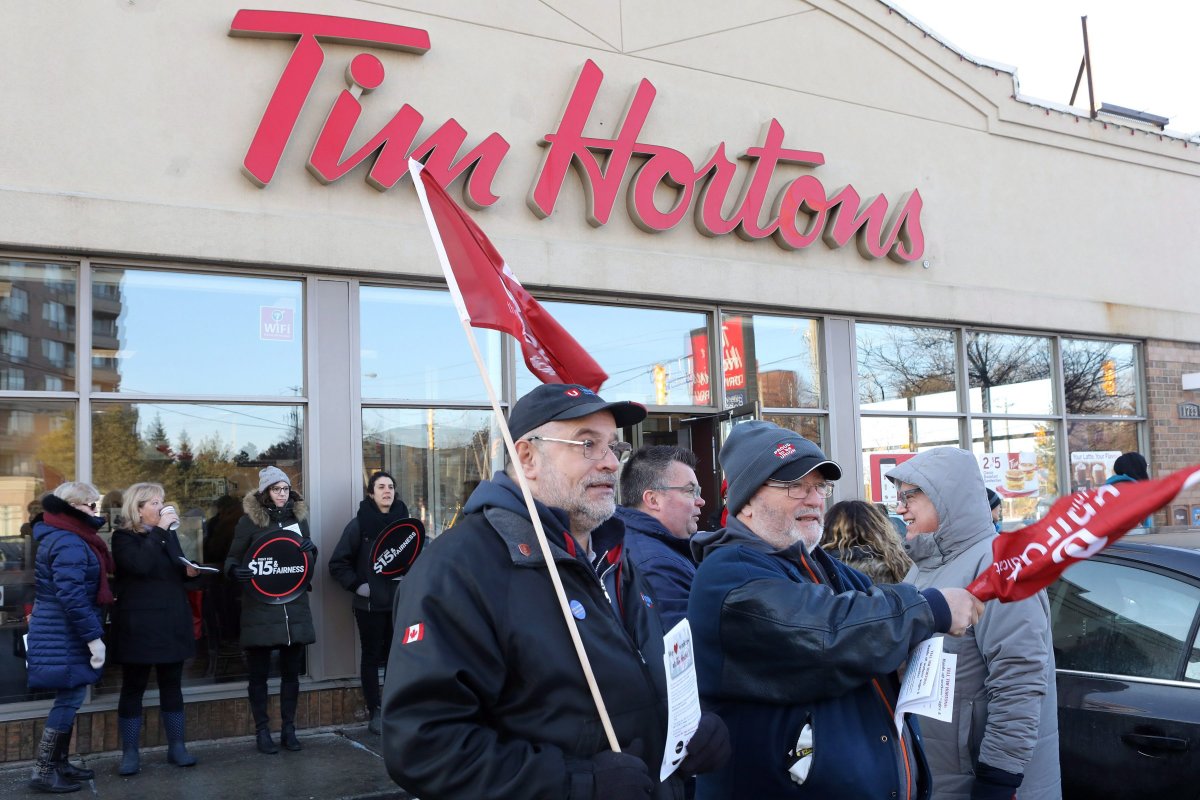Based on the headlines from this past week, one might get the impression that people choose to buy coffee based on their perception of which coffee chain treats their employees most generously.

We should be skeptical of this proposition.
Frankly, people are free to use whatever criteria they wish in selecting their preferred coffee merchant. I suspect the long line ups commonly seen at Tim Hortons, though, have more to do with a preference for convenient, hot coffee at a reasonable price. Most people probably have no clue as to how wages and benefits compare between Tim Hortons, McDonalds, Starbucks, Second Cup, or any independent coffee shop in any city or town across Canada.
Suddenly now, as small businesses in Ontario — and elsewhere — struggle to adapt to the new costs being imposed on them through increased an minimum wage, Tim Hortons has found itself at the centre of controversy. This all started after franchise owners of two Ontario Tim Hortons locations told their employees that paid breaks and some benefits would be cut in response to the province’s minimum wage increase. It didn’t help that one franchise happened to be owned by the son and daughter of one of the co-founders of the company.
Ontario Premier Kathleen Wynne even weighed in, criticizing the owners for what she called the “bullying” of its employees. Mind you, the premier of a province singling out and denouncing the manner in which a small business is adjusting to new government policy could also be viewed as “bullying.” But that initial outcry gave way to protests and now the protests have given way to a boycott campaign called “No Timmys Tuesday.”
A business’s capacity to compensate its employees is determined in large part by how significant the demand is for the product it sells. Driving business away from Tim Hortons only reduces its capacity to sell its products, and will ultimately mean the employees suffer. Boycotts are generally ineffective to begin with, but few seem as counterproductive as this one does.
If a business wants to take a political position, then it’s reasonable that some people might choose whether to use that business based on their own political lens. But that’s not the case here. Tim Hortons franchise owners aren’t marching on Queen’s Park or running ads targeting the government. They’re simply trying to figure out how to adjust to this policy change — and they’re not alone.
In Alberta, for example, businesses are faced with the same challenge. A recent report from the Calgary Chamber of Commerce found that the cumulative impact from the carbon tax, minimum wage increases, and rising municipal property taxes will mean cost increases this year of over $40,000 for the average Calgary restaurant.
Ontario’s dramatic minimum wage hike, though, will mean an even more dramatic cost increase. One estimate puts the average cost from the increase on Tim Hortons franchisees at over a quarter of a million dollars. That’s got to come from somewhere. Every small business needs to figure out how this impacts its bottom line and how it’s going to deal with it. Not every decision is going to make the news or warrant a comment from a prominent politician.
Even if these Tim Hortons franchisees relent under pressure and restore the benefits they took away, that still leaves them with the problem of adjusting to these new costs. Reducing hours, not filling vacancies, or even laying off staff would all be worse outcomes for those employed there, but probably wouldn’t generate as much press coverage.
WATCH BELOW: The impact of raising the minimum wage

Or, these stores could just raise their prices. In the long run, though, that could hurt sales and mean more tough choices down the road. It also means higher prices for these same low-income workers we’re ostensibly trying to help.
Simply put, this boycott is misguided in several ways. If people want policies that could actually help the working poor, they should take it up with our political leaders, not small business owners.
Rob Breakenridge is host of “Afternoons with Rob Breakenridge” on Global News Radio 770 Calgary and a commentator for Global News.




Comments